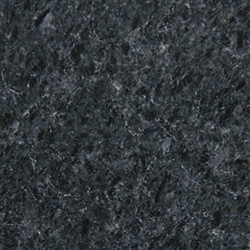Gravestones will often deteriorate over time due to weathering however there are various preservation and cleaning techniques that we can use to help increase longevity and limit the effects of discolouration and weathering. We offer a cleaning and restoration service and depending on condition can also remove stones for refurbishment in our workshop. Our expert stonemasons can offer a simple memorial clean and polish to a complete renovation of any headstone which could involve re-gilding or re-cutting the inscription.

With a hardness of only 3-4 on the Hardness Scale, limestone and sandstone are among the softest materials used for gravestones. Due to their fragility it’s important to thoroughly assess them for damage before you begin cleaning. To clean these yourself mix a cup of non-ionic soap in a bucket of distilled water and use a natural bristled brush to wipe the surface. Do not use metal wire brushes, acidic cleaners, household cleaners or pressure washers. Doing so could cause the gravestone to crumble. We can undertake this cleaning for you if preferred.

Marble has a hardness of 4-7 on Hardness Scale, making it tougher than sandstone and limestone, but not as durable as granite. Although marble is fairly tough, it’s still not a good idea to use a pressure washer. To clean, mix a cup of ammonium hydroxide in a bucket of distilled water and use a natural bristled brush to wipe it over the surface. This will remove any moss, algae and lichen. Rinse off the cleaning solution with distilled water when you have finished. We can undertake this cleaning for you if preferred.
Slugs and snails can be used to naturally clean gravestones as they actively consume lichens, mould and algae. To utilize this cleaning method, make an artificial greenhouse by covering the gravestone with a polythene sheet. If you leave it for a few days in hot weather it will attract slugs and snails and encourage them to do the hard work for you.
Regardless of which cleaning method you use, always wash the gravestone from the bottom up and make sure any bronze plaques or ceramics are covered before you begin. When you finish, make sure the cleaning solution has been completely removed – long term exposure could cause damage. Gravestones do not require cleaning on a regular basis, definitely no more than once per year. In fact, some gravestones should not be cleaned more than once every ten years.
In addition, you may need to seek permission from the churchyard or cemetery before you begin as they may have a registered caretaker that will conduct the process on your behalf or we can be appointed to do this for you. If there are deep stains even after you’ve cleaned the gravestone, don’t remove them. You should also not attempt to refinish gravestones yourself as this is specialised work which we can do for you.

Because bronze plaques are often mounted into a flat base, they can be more susceptible to weathering. Bronze gravestones usually have a lacquer finish when new, which if neglected, will deteriorate over time. Unlike other materials, bronze gravestones require waxing after they are cleaned in order to bring out the shine. Start by applying a small amount of water mixed with non-ionic soap to the bronze with a natural bristled brush. After scrubbing off any dirt, rinse the bronze with distilled water. Make sure the bronze is completely dry before you apply the wax. To speed up the process, use a flannel cloth to wipe it down. Apply the wax with a natural bristled brush. Coat the entire surface and then buff the bronze with a flannel cloth to bring out the shine. Do not clean bronze markers too frequently and remember that bronze will natural darken over time. We can undertake this cleaning for you if preferred.

Granite is the strongest material with a hardness of 7-9 on the Hardness Scale. When cleaning granite, mix a cup of non-ionic soap in a bucket of distilled water and use a non-metallic scouring pad to scrub the surface. This will remove calcium deposits. It’s okay to be a little more aggressive with granite as it’s much stronger than other materials. You can also use a pressure washer; however, be wary if the gravestone or lettering is coloured. The strength of the water flow could strip off paint in engraved areas, leaving little contrast for the reader. . We can undertake this cleaning for you if preferred.
